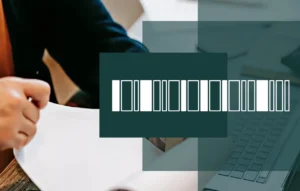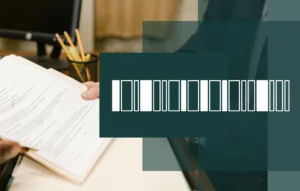Almost every US state requires business owners to register for a sales tax permit before collecting and remitting sales and use tax to the state. But how do you know when you need a sales tax permit? And what states do not require you to register?
We’ll walk you through everything you need to know about sales tax permits, including registering for a sales tax permit in every state or registering for multiple states via the Streamlined Sales and Use Tax Agreement (SSUTA).
What Is a Seller’s Permit?
A seller’s permit is an identifier assigned to your business by a state government agency. It allows you to collect sales tax on the items you sell online or in-store, which you must then remit to the states periodically after filing sales tax returns. You cannot collect and remit sales tax for your place of business without it.
Seller’s permits are issued by the states and may have different names depending on where you are applying, including:
- Wholesale license
- Sales tax license
- Vendor’s license
- Retail license
- Use tax permit
- Sales permit
When Do You Need to Get a Seller’s Permit?
As an e-commerce business, you are generally required to hold a seller’s permit (sometimes called a sales tax license, sales tax permit, or sales tax certificate) when you do the following:
- Have sales tax nexus in a state. This means your business has a physical or economic connection to a state. This can range from having an office in a state to making a certain amount of sales in a state.
- Sell taxable items in your nexus state(s) or local jurisdictions. Some states don’t tax certain items, like grocery food, medication, or clothing. You may not need a sales tax permit if you only sell non-taxable items in that state or local area. Note that some states require all retailers to register for a sales tax permit anyway and that a sales tax permit is also required in order to purchase goods tax-free for resale.
- Are responsible for collecting sales tax on those items. In the US, online marketplaces like Amazon and Walmart must collect sales tax on behalf of third-party sellers. However, many states still require e-commerce retailers to register for a sales tax permit, even if they only sell on marketplaces that collect and remit for them.
Once registered to collect sales tax in a state, you must collect sales tax from buyers in that state.
When to Register for a Seller’s Permit
States generally require retailers to hold valid seller’s permits before making their first sale in the state.
Zamp Tip
For example, as an e-commerce seller, you’ll generally always have sales tax nexus in your home state. That’s because you live and work in your business there. Unless you live in a state with no sales tax, you should generally always register first for a sales tax permit in your home state.
However, more confusing factors about where an e-commerce seller should register are at play.
Take economic nexus. As an e-commerce seller, you trigger economic nexus when you meet a state’s economic nexus threshold. This is generally $100,000 in sales or 200 transactions over a year. However, thresholds vary by state. And, unfortunately, there is no magic buzzer to tell you when you’ve met a state’s economic nexus threshold.
Therefore, it’s vital to keep a close eye on your sales amounts and number of sales transactions in each US state and register for a seller’s permit once economic nexus has been triggered.
What if I Triggered Economic Nexus in the Past and Didn’t Register?
Because US sales tax laws are so confusing, this is not uncommon. Unfortunately, states do not consider “I didn’t know I had nexus” a defense, and they want their past due sales tax. The first step when you discover that you have had historical sales tax nexus is to determine the extent of your exposure. Depending on your sales in a state, you may owe hundreds or thousands in past due sales tax.
From there, you have options. You can come clean and pay the past due sales tax, register for a seller’s permit, and collect sales tax going forward. If your sales tax exposure is extensive, you can contact a sales tax expert to help you with a Voluntary Disclosure Agreement (VDA).
The worst thing you can do when you discover your business has sales tax nexus is ignore the problem and hope it goes away. We recommend speaking with a sales tax expert if you find out you’ve had historical sales tax nexus.
How to Register for a Seller’s Permit in Every US State
Now that you know you’re required to register for a sales tax permit, your next step is to visit your state’s taxing authority and sign up.
Forty-five US states (and the District of Columbia) have sales tax. Each of these states is allowed to make its own sales tax rules and regulations, meaning that signing up for a seller’s permit is different in each state.
In general, you’ll visit your state’s taxing authority’s website to register for a seller’s permit. This is often called the “[State] Department of Revenue” but may go by another, less intuitive name, such as the Texas Comptroller or the California Department of Tax and Fee Administration (CDTFA).
Below, we’ll look at what you’ll need to do to register for a seller’s permit in every state.
Steps for Registering for a Seller’s Permit
Alright, let’s get down to the actual steps of applying for your sales tax ID:
1. Check Your State’s Requirements
Since every state has its own set of rules and regulations regarding sales tax, you first need to figure out what applies in your area, even if you are an out-of-state seller. A great starting point is to visit our guide to sales tax by state.
These detailed state guides provide information on each state’s sales tax registration requirements, including how to contact the local Department of Revenue directly. You’ll find links to the official state websites to access the necessary forms and find out if some specific conditions or exemptions apply to your business. This resource is invaluable for ensuring you’re fully informed and can access all the correct paperwork to start your application process.
2. Gather Your Information
Before starting the application process, it’s important to gather all the essential information you’ll need to fill out the forms. This includes basic details about your business, such as your official business name, the physical address where your business operates, and the specific type of business you run (like retail, wholesale, or service-based).
You will generally need:
- Federal Employer Identification Number (EIN) or Your Social Security Number (SSN)(for sole proprietorships only)
- Business name
- Activity start date for your business or limited liability company (LLC)
- Contact number for a business representative
- Physical and mailing address
- Activity start dates, filing frequencies, and fiscal months for each tax type you are registering for
You should also be prepared to provide contact information, such as your business phone number and email address, which will be used for official communications regarding your sales tax ID. If your state requires it, you might also need information about your estimated monthly sales and the products or services you plan to sell.
You may also need articles of incorporation/articles of organization, SS4 (IRS Determination letter), and a corporate income tax return. Remember that this is not an exhaustive list, and there may be other documents you must present to the state when registering for a sales tax ID number.
3. Fill Out the Application
Filling out your application for a sales tax ID is typically a task you can complete online, which is both fast and convenient. Most state revenue departments have designed their online portals to be user-friendly, guiding you through the application process. Once you access the application form on your state’s website or through the link provided in our state-specific guide, you’ll be prompted to enter all the information you gathered earlier.
The online form will likely ask you to input details such as your name, address, type of business, SSN or EIN, and possibly estimates of your monthly sales. It will also include sections where you must specify the products or services you sell, which could influence the tax rates or the applicability of the tax. Be sure to follow each instruction carefully, and fill in every required field accurately to avoid mistakes that could delay your application.
As you work through the form, there might be helpful tooltips or links to FAQs that can assist you if you’re unsure about how to answer a specific question. Take advantage of these aids if you need clarification, ensuring that every piece of information you enter is correct. Once you’ve completed all sections of the form, you’ll typically review your entries before submitting to ensure everything is in order. This step is crucial as it’s your last chance to catch and correct any errors before your application is processed.
4. Submit and Wait
After double-checking your application and ensuring all the information is complete and accurate, you’re ready to submit it. Look for the ‘submit’ button at the end of the online form. Clicking this will send your application off to the state’s Department of Revenue for processing.
Some states require a processing fee for your sales tax ID application. This fee varies from state to state, so it’s important to be prepared for this additional cost. Payment options are typically straightforward, allowing you to pay via credit card or electronic bank transfer directly through the online portal.
Once your application and payment are submitted, the next step is simply to wait. The processing time can vary, but many states offer a quick turnaround, often issuing a sales tax ID in just a few business days.
During this waiting period, keep an eye on your email and postal mail for any communications from the state’s tax department. They might contact you if they need more information or to give you updates on your application status. In some cases, you might be able to check the status of your application online through the same portal where you submitted your application.
Obtaining your sales tax ID is an important step in setting up your business legally. While waiting might seem like downtime, it’s a key part of ensuring your business starts on the right foot. Be patient, and soon enough, you’ll have your sales tax ID and be ready to conduct your business with all the necessary legal requirements in place.
Registering for a Sales Tax Permit under the Streamlined Sales and Use Tax Agreement (SSUTA)
You may also elect to register for a sales tax permit through the Streamlined Sales Tax Registration System (SSTRS). This allows you to register for multiple states with just one application and may provide other benefits. However, not all states are members of the SSUTA, so remember that even if you elect to register this way, you may still have to register individually in other non-member states.
How Much Do Seller’s Permits Cost?
As mentioned above, you must have a seller’s permit before paying state tax. Here’s a look at how much a sales and use tax permit may cost you by state:
Sales Tax Permit: Conclusion
If you sell in a state with a physical presence or hit economic nexus, you must register for a sales tax permit. Those who do not register are likely to face hefty fines in every state in which they operate.
Automated sales tax solutions, like Zamp, manage the sales tax process for you, including registering you in states where you need to. Want to learn more about how we can take the headache out of sales tax compliance for you? Book a call below.
Get Help for Your Company
30-minute call
sales tax expert
off your plate



